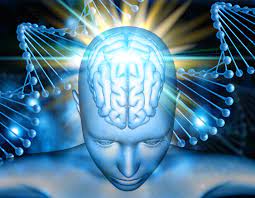Food intolerances are adverse reactions that occur in the body due to the consumption of certain foods that are not metabolized, digested, or assimilated correctly. The effects of food intolerances can range from mild discomfort to severe symptoms, and they can greatly impact a person's quality of life. In this article, we will explore the causes, symptoms, and treatment of food intolerances.
What are Food Intolerances?
Food intolerances occur when the body is unable to properly digest or metabolize certain foods. This can happen when the body lacks the necessary enzymes to break down the food or when the food is not recognized by the immune system. Unlike food allergies, which are an immune system response, food intolerances are typically caused by a digestive issue.
Causes of Food Intolerances
There are several factors that can contribute to the development of food intolerances. In some cases, food intolerances are inherited, and people may be born with a predisposition to certain food intolerances. However, most food intolerances develop throughout life due to a variety of factors, such as:
- Enzyme deficiencies: Some people may lack the enzymes needed to break down certain foods, such as lactose in dairy products.
- Gut health issues: Conditions such as leaky gut syndrome, celiac disease, and irritable bowel syndrome can lead to food intolerances.
- Chemical sensitivity: Some people may be sensitive to additives and preservatives in food, such as MSG or sulfites.
- Histamine intolerance: Histamine is a chemical that is produced in the body and found in certain foods. Some people may be intolerant to histamine and experience symptoms after consuming high-histamine foods, such as aged cheese or wine.
- Food poisoning: In some cases, food intolerances can develop after a bout of food poisoning or gastroenteritis.
Symptoms of Food Intolerances
The symptoms of food intolerances can vary depending on the individual and the type of intolerance. Some common symptoms include:
- Abdominal pain and bloating
- Diarrhea or constipation
- Nausea and vomiting
- Headaches
- Fatigue
- Skin rashes or hives
- Joint pain
Diagnosis of Food Intolerances
Diagnosing food intolerances can be challenging, as the symptoms can be similar to other digestive issues. In some cases, elimination diets can be used to identify trigger foods. A food diary can also be helpful in identifying patterns of symptoms after consuming certain foods. In some cases, medical tests such as blood tests, stool tests, or breath tests may be used to diagnose food intolerances.
Treatment of Food Intolerances
The most effective treatment for food intolerances is to avoid trigger foods. This can be challenging, as many foods contain hidden ingredients that can trigger symptoms. It is important to read food labels carefully and to ask about ingredients when eating out. In some cases, digestive enzymes or probiotics may be helpful in improving gut health and reducing symptoms.
Conclusion
Food intolerances can have a significant impact on a person's quality of life, and it is important to understand the causes, symptoms, and treatment options. While some food intolerances may be inherited, most develop throughout life due to a variety of factors. Symptoms can vary from mild discomfort to severe reactions, and treatment involves avoiding trigger foods and improving gut health. By understanding and managing food intolerances, people can improve their overall health and wellbeing.















